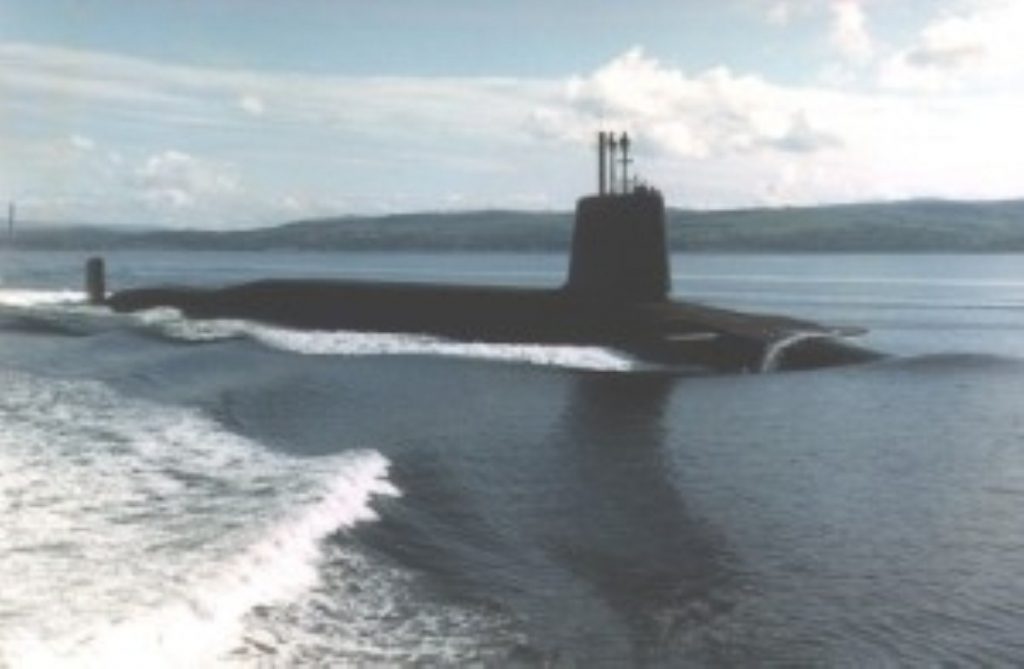Blair faces MP revolt over Trident
Tony Blair is preparing to face the biggest rebellion of his parliamentary career, as MPs vote whether to renew the UK’s Trident nuclear defence system.
MPs have begun debating Trident renewal, with the House set to divide at 7pm.
Speaking before the debate in prime minister’s questions, Mr Blair once again defended the timing of the vote, claiming any parliamentary decision on the design stage of Trident must be made “today”.
Arguing the need to maintain the UK’s nuclear defence, he said it was “essential for security in an uncertain world”, adding the only certain thing about the future is its unpredictability.


The prime minister insisted that it is possible for the UK to abide by its duties under the non-proliferation treaty and still maintain a nuclear deterrent.
Many Labour backbenchers are set to vote against the £20 billion plan to replace Trident while two prominent frontbenchers have already resigned to vote against the government today.
Nigel Griffiths resigned as deputy leader of the House on Monday and yesterday ministerial aide Jim Devine quit his post in protest at the government’s plans.
Westminster watchers predict 60 Labour MPs are likely to vote against renewal, while 80 Labour MPs are among the 154 who have signed a parliamentary motion calling for more consultation on the need for Trident renewal.
Labour MP Jon Trickett, who will table an amendment calling for more consideration, said: “It is of course unprecedented for a government to offer parliament a vote on such a matter and that is to be welcomed, but the case has simply not been made that we need to replace Trident, and crucially, that a decision must be taken now.
“Too many questions relating to timeframe, costs, independence and legality remain insufficiently addressed.”
The government is unlikely to lose today’s vote as the Conservatives have already spoken in support of replacing Trident. Shadow defence secretary Liam Fox said it is necessary as you cannot tell if other countries, such as Iran and North Korea, will develop nuclear weapons.
Mr Blair also argues that it is necessary to maintain defence as it is impossible to second guess future threats.
He has been accused of forcing through a vote on Trident before his departure as Labour leader in an attempt to shore up his legacy. However, the prime minister maintains that the long lead time needed to develop Trident compels the government to make a decision now or effectively decide not to replace Trident.
A fleet would take 17 years to build and then last until 2050. In December Mr Blair indicated that the current four submarines could be cut to three, while the number of nuclear warheads could also fall by 20 per cent.
In 2003, Mr Blair faced down 138 Labour rebels over the decision to go to war in Iraq and 72 backbenchers rebelled against the government over university top-up fees.









